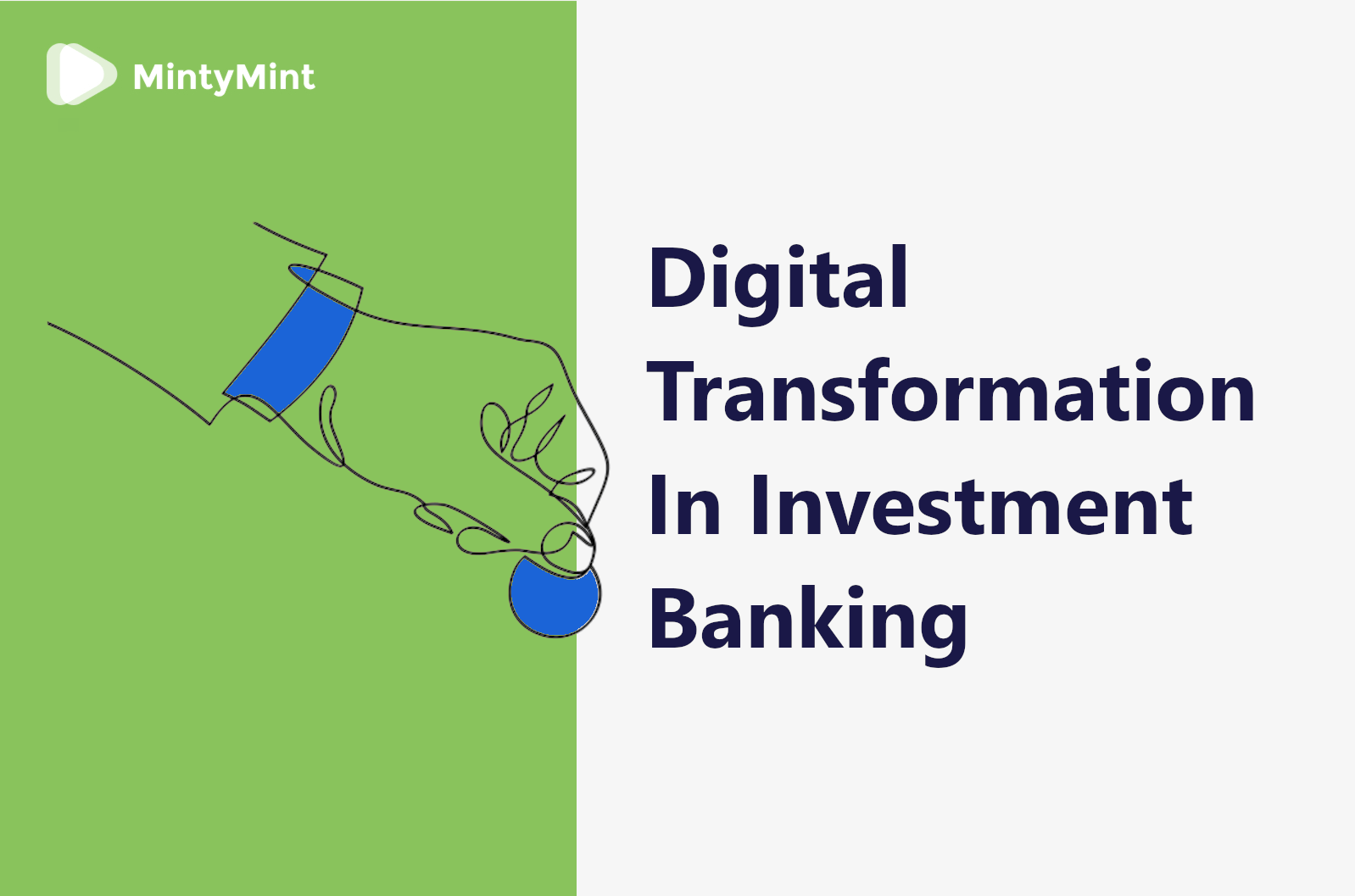As digital becomes mainstream, a collision of two worlds is unfolding: finance and technology. As the lines between them blur, fintech companies have to embrace digital transformations to stay competitive on the market and meet the challenges they are facing in 2020.
Financial institutions can launch digital-only products and services and eliminate a number of costly branches and field agents to improve customer experience. However, they still need to update their strategies, combining new data processing methods with advanced analytics and cybersecurity tools.
Finance and BigTech
One of the key challenges determining the destiny of fintech has always been constant competition.
In 2020, it gains even more influence as non-financial companies are entering the market, setting new standards. Titans of technological innovation are turning their attention to the financial sector, becoming the so-called BigTech. They bring a variety of app-related services, from banking to ride-sharing, built in a single app under one roof.
Like that, Facebook created Facebook Pay and introduced its own cryptocurrency Libra to make global payments cheaper and faster. Apple has already presented a credit card, and Google plans to introduce consumer bank accounts later this year. Meanwhile, Amazon and Airbnb are partnering with JPMorgan to provide e-wallets. Uber is also moving further into finance with Uber Money and new financial products.
FaaS Benefits
All of them provide finance-as-a-service which has the following obvious benefits:
- APIs that allow to scale fast and open up multiple markets simultaneously;
- linking today’s tech-forward businesses with legacy financial systems that drive the majority of global commerce;
- unlocking a new playground for fintech innovators;
- delivering exceptional customer experiences for localized and cross-border commerce.
However, it doesn’t mean that these data-rich businesses have plans to become regulated financial institutions. Given the headache of getting and maintaining a banking license (which is also a big risk), they will mostly operate with licensed partners instead of switching to full-stack banking. In fact, they will probably just try to keep users hooked on the app to drive revenue.
That said, BigTech has a massive pool of users whom they understand better than anyone else. This allows changing the competitive finance landscape, forcing traditional institutions to rethink the way they do business.
To keep up with BigTech and withstand the competition, financial companies need to focus on and meet the following challenges:
Challenge #1: Data breaches and cybersecurity
Sensitive data and interconnected systems with millions of transactions handled every day makes financial firms the primary targets for cybercrime. In fact, they and are hit 300x more than any other type of business, with one hacker attack happening every 39 seconds. So, fighting off cybercriminals is a daily task for the fintech industry.
IT security specialists from western companies provide worrying reports on the security of operations. In the past year alone, 48% of financial institutions were breached and 52% experienced a cyber attack or signs of suspicious behavior in their infrastructure.
Common threats.
It happens for a number of reasons:
- Use of third-party solutions;
- Rapidly evolving, sophisticated, and complex technologies;
- Cross-border data exchange;
- Increased use of mobile technologies, including the rapid growth of IoT;
- Heightened cross-border information security threats.
By 2024, cybersecurity spending will increase by $224 billion. On average, one cyber-attack costs a financial institution $1.8 million. Notably, smaller companies experience the biggest losses (due to lower investment in IT security).
Meanwhile, a loss of data can not only result in negative repercussions for businesses of all sizes but even bankruptcy. In fact, 60% of them close operations within half a year after the cyber-attack.
Solutions
This makes financial companies come up with the integration of innovative solutions to stay ahead of cybercriminals:
- Data encryption and data loss prevention solutions (encoding a message or information to be accessed by authorized parties only);
- End-to-end data protection (protecting data during transmission);
- Blockchain and distributed ledger technology (as it requires both a public and a private key);
- Endpoint Detection and Response (deployed on devices to provide continuous monitoring and automatic response to advanced threats).
Security should be built into all aspects of the business. So that when it evolves, the cybersecurity strategy can evolve along with it. With the digitalization of the industry, financial companies should be quick and agile to update existing systems. This will help to fight fraudulence, identity theft, espionage, money laundering, and avoid the lack of customers’ trust.
However, heavily invest in technology is not enough. Companies still have to train employees and customers on how to react in case of a cyber-attack. Another option is to hire ethical hackers to detect and fix loopholes in the system before real hackers jump in.

Challenge #2: Complying to regulations
As the fintech revolution goes on, companies have to operate between the financial and technology sectors. This makes them deal with many strict regulations. Therefore, customer concerns over sharing data with unknown third-parties become the main stumbling stone for financial services in 2020.
This is no bombshell, of course, and financial institutions are already well-equipped to stay compliant. At the same time, smaller companies often have fewer resources to meet all the data security and financial regulations, which creates certain risks.
Introducing an innovative idea to the market and getting government sign-off is a highly time-consuming process. And expanding internationally opens up a whole can of additional regulations. One of the biggest rule changes for fintech became the 2018’s GDPR. Failing to comply, enterprises in the UK have already received fines totaling £300 million.
RegTech
The main goal of all these regulations is to boost innovation and competition, improve security, and provide customers with a wider range of financial products. As it’s nearly impossible for a human to keep up with, the so-called RegTech tools help financial companies standardize and automate compliance processes. These solutions are based on a bunch of technologies like AI, Blockchain, and Big Data Analytics. They can perform activities like:
- Real-time searching and reporting new or reviewed regulations;
- Analyzing the collected information and sharing its impact with the stakeholders;
- Updated data processing and validation;
- Ongoing tracking and monitoring;
- Predictive problem-solving;
- Robotics-automated workflow, regulatory and risk management.

Leading banks like Deutsche Bank and JPMorgan spend over $1 billion yearly on regulatory compliance control. More so, 64% of small companies have already implemented RegTech tools to bridge the gap between authorities and the financial service market.
Flexible, easy-to-integrate, and cost-effective analytics tools developed by experienced dedicated technical teams allow financial institutions to identify non-compliant cases within the organization’s activities, compare scenarios, and predict potential full-scale market problems instead of resolving their consequences.
Challenge #3. Technology trends change
Being one of the most conservative industries, the financial sector faces many challenges and concerns in implementing new technologies.
2020 will see more adoption of Blockchain, AI, and Big Data in other industries. As for the fin sector, there is still not enough action in this direction. Just think about mobile banking apps, IoT-based insurance services, payment systems, AI-powered customer support digital assistants, and trading bots serving as high-tech advisory outlets. While many companies already understand that digital transformation is essential, some are still failing to achieve this.
With the number of connected devices reaching 40Bn by 2022, financial institutions have to adopt a digital-first strategy in order to stay competitive. Investing more in AI, ML, robotics, and other workflow automation tools can help to increase efficiency and reduce the costs related to risk management and compliance. It also means modernizing current data storage solutions and updating existing platforms to provide more friendly customer experience and enable more progressive solutions.
All in all, there are 4 key technologies financial companies should implement to effectively manage their operations and become digital-first:
Cloud.
The number of fintech companies that adopted a cloud provider is steadily growing.
IBM has already announced its collaboration with Bank of America to develop a secure fintech public cloud solution. Although only 22% of them currently run on the cloud, 2020 will become a tipping point for the industry. The majority of fintech starting today are cloud-native, which lets them be agile and scalable.
It quickly became the mainstream in banking, providing a blend of IT, public and private clouds. This results in such benefits as compliance, governance, reduced costs, enhanced innovation, security, and operational efficiency. The ability of fintech firms to quickly innovate and offer customer-centered services lies at the core of the fintech revolution, which is impossible without cloud computing migration.
Big Data.
The financial industry has become a leader in the adoption of advanced data analytics.
71% of finance organizations are already seizing the benefits of more personalized products for B2C and B2B clients. Although Big Data is a necessity for fintech companies, it is also a real challenge. Increased volumes of data created by a number of sources are often too much for legacy data systems to handle.
By 2020, there will be 44 trillion gigabytes of digital data to sort through. Doing it, financial institutions need to take advantage of Big Data solutions that offer customer segmentation (gender, age, economic health, location, online behavioral patterns), fraud detection (prevention of suspicious activity), and risk management (predictive analytics).
Artificial Intelligence.
With 5G’s stable connection and IoT’s explosive growth of unstructured data, there is more information to be analyzed in real-time. This makes finance companies turn to AI/ML algorithms. Therefore, they can become more mobile, gain insights into customers’ behavior, and tailor their products and services more effectively.
Suddenly, finance organizations can work with large volumes of data and improve business processes using smart help.
AI makes chatbots provide informed financial advice, helps to detect fraud, and guides customers’ investments that led to the creation of such terms as machine intelligence and augmented finance. In fact, 54% of bank customers demand personalized real-time advice, while 41% state that they don’t mind taking it from an AI, and this demand keeps growing. According to statistics, 45% of frontrunner firms that invested $5 million in AI initiatives increased their revenues 3 times. Meanwhile, 25% of those who invested $10 million have also noticed a great change in customer experience level. In general, AI lowered operational costs by 20% which definitely makes it the future for financial services.
Blockchain.
Experts say that Blockchain has a transformational impact on the fintech industry throughout the entire spectrum of financial services.
Apart from cryptocurrency use, it helps with information exchange, automating processes via smart contracts, global payment transactions, security, fraud detection, verification, KYC, and loan processing. From monetary transactions to transferring contracts, financial institutions will be applying Blockchain technology more as popularity grows.
2020 offers digital-only banks, APIs use, fintech mobile wallets, online global transfers and other opportunities for business growth. Financial institutions have to understand the full use case for these technologies and apply it to offer better products and services to the end-users. Using this driving force, financial organizations can redefine themselves, stay more competitive and responsive to the market needs.

Notably, today over 51% of the US and UK companies experience a lack of professionalism to put tech into practice.
Partnering with a reliable technical development team may be an efficient way to mitigate the talent shortage. Remember that even a small step like app development or website redesign can boost your sales and attract new customers.
How to prepare for digital transformation?
Taking into account all the challenges, there are 6 key priorities for financial institutions to achieve success in 2020:
Update your current system
…as well as the IT operating model.
Even if the system serves you well today, it should be updated regularly to keep up with a technology-driven world. Think about modernizing the platform, adding features, implementing automatic regulatory tools, or applying AI-powered algorithms. This will increase performance and provide your customers with more options.
Slash costs.
Financial institutions spend twice as much as they need on IT operating costs, regulatory fixes, cybersecurity, and fraud prevention. Meanwhile, it is possible to cut expenses by simplifying legacy systems, adapting robotics and AI, and using a reliable technical partner.
Use technology capabilities.
Get more intelligent about your clients’ needs and act in real-time. This is one of the key points affecting the financial industry as it drives more revenue and profit. You need to change the way you interact with your customers using a smart balance of human and machines;
Prepare your architecture.
Be ready to connect to anything and anywhere: enterprise databases, cloud services, B2B (partners systems) and B2C (individual mobile devices) connections, IoT sensors, third party sources of big data, etc. There are many complex and diverse systems that can coexist and cooperate;
Take care of cybersecurity.
Fintech has been suffering from security risks for decades and many financial institutions rely on an outdated model. However, the traditional approach no longer works as IT risks constantly evolve. Thus, keeping abreast with it becomes a priority;
Get the necessary talent and expertise.
Make sure you are ready to meet all those challenges with the right technical execution team. Partnering with a third-party talent to create the right solutions and manage the operations is essential in the finance field.
Implementing these strategies, companies should also pay attention to three C’s: credibility, collaboration, and customer experience.
Customers are always skeptical so building trust becomes a necessary task, especially with new technologies integrated. Partner with similar businesses to create a network of like-minded people and produce perfect, clear, authentic, and informative online experience for your customers to build positive long-lasting relationships.

Summary
Transforming the finance industry is certainly not an easy task. Lack of specialists, tools, budget, and knowledge are the main roadblocks for the financial sector. However, reshaping financial services creates a lot of opportunities for companies to reinvent their business models through innovation.
Looking ahead, the blend of technology, regulations, investor capital, and globalization will lead more fintech developments in the coming years.















